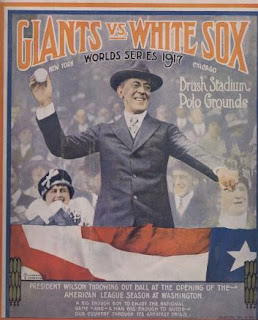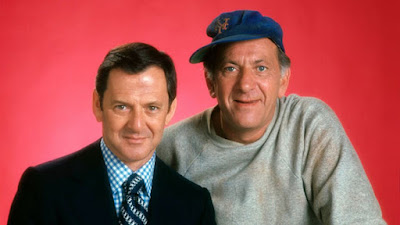Heinie Zimmerman: Old Time Bronx Born New York Giants Player Who Got Banned from Baseball (1916-1919)
Henry Zimmerman was born February 9th, 1887, in the Bronx, New York. He was one of nine children to German immigrants. His father was a salesman who had a hard time supporting the family, so the many of the kids had to work instead of getting an education. By the age of 14 Henry was working as a plumber's assistant to help his family earn money.
Zimmerman was popular but was not known for his baseball smarts. He was looked at as a dim-witted eccentric, even in the baseball world. He became known for erratic play as well as erratic behavior. After every season it seemed he was saying he was retiring from the game but then changed his mind when Spring Training came around.
Zimmerman began his career as a reserve infielder on the Cubs famed infield of Frank Chance, Johnny Evers & Joe Tinker. He would play parts of ten seasons with the Cubs soon becoming a regular.

New York Giants Career: In 1916 his career in New York began well, in 40 games with the Giants he batted .272 with 19 RBIs. His total for the season was tops in the NL at 83, giving him his second RBI Crown. Even with his accomplishments observers felt he was not giving it his all.
Henry became a star player on the sand lots of New York City, before signing a contract with the Chicago Cubs in 1906.
He became known as Heinie & also earned the baseball monicker "the Great Zim" a reference to the "Great Houdini" who was a popular magician at that time. Heinie loved the name & referred to himself in the third person with that name to the delight of the fans.
Zimmerman was popular but was not known for his baseball smarts. He was looked at as a dim-witted eccentric, even in the baseball world. He became known for erratic play as well as erratic behavior. After every season it seemed he was saying he was retiring from the game but then changed his mind when Spring Training came around.
Zimmerman began his career as a reserve infielder on the Cubs famed infield of Frank Chance, Johnny Evers & Joe Tinker. He would play parts of ten seasons with the Cubs soon becoming a regular.
1907 & 1908 World Series: Zimmerman made it to three Cubs World Series, winning a Championship in 1907 beating the Detroit Tigers. In that Series he played in just one game getting one at bat (0-1). The Cubs repeated as World Champions in 1908 beating the Tigers once again.
By 1910 he was seeing action in 99 games as a reliable utility infielder. That team got to their third World Series in four years under legendary manager Frank Chance.
1910 World Series: In the World Series five game series loss to Connie Mack's Philadelphia Athletics, Heinie hit .235 with an RBI double in Game #2.
In 1911 he became the Cubs main second baseman taking over for the famed Johnny Evers, who got injured. That season Zimmerman batted .307 (9th in the league) with 22 doubles & 17 triples (4th in the league) driving in 85 runs (9th in the league) but his Cubs finished in second place to the mighty New York Giants.
In 1912 he moved over as the third baseman & had a big year, coming in sixth in the MVP voting. The Big Zim originally won the NL Triple Crown, but through the years it was discovered his RBI totals were added up wrongly & he actually came in third in the league. He still won the batting title, hitting .372, leading the league in hits (207) doubles (41) HRs (14) & slugging (.571%).
Marriage & Divorce: That same year he married the 17-year-old Helen Chasar who would give birth to their daughter a year later. The marriage fell apart & divorced four years later with Helen suing him for unpaid support. Zimmerman didn't know how to manage his money & reportedly just kept asking the teams secretary for cash until his salary money ran out.
In 1913, he batted over .300 for the third straight season (.313) & drove in 95 runs. During a five-game stretch the hot-tempered Zimmerman who said he hated umpires, was thrown out of three different games.
Zimmerman spent ten seasons with the Cubs, hitting over .300 three times & winning an RBI title. During those Cub years he was in the top ten in the league's batting race four times. He would also be in the top ten in doubles, triples, HRs, RBIs, hits & total bases consistently. Heinie has been voted #98 on the All Time 100 Greatest Cubs list.
Zimmerman spent ten seasons with the Cubs, hitting over .300 three times & winning an RBI title. During those Cub years he was in the top ten in the league's batting race four times. He would also be in the top ten in doubles, triples, HRs, RBIs, hits & total bases consistently. Heinie has been voted #98 on the All Time 100 Greatest Cubs list.
In his later Cub years, he was known to be a problem & dishonest. In 1916 he was traded to the New York Giants for Larry Doyle, Herb Hunter & Merwin Jacobson. At the time he was suspended for "laying down on the job", most managers wanted no part of him, but in New York John McGraw prided himself on rehabilitating players.

New York Giants Career: In 1916 his career in New York began well, in 40 games with the Giants he batted .272 with 19 RBIs. His total for the season was tops in the NL at 83, giving him his second RBI Crown. Even with his accomplishments observers felt he was not giving it his all.
In 1917 the Giants rebounded to winning the NL pennant with The Big Zim leading the way. He won another RBI title, driving in 100 runs, leading the Giants batting .297 (7th best in the NL).
He also had five HRs with 22 doubles, nine triples & 174 hits (4th in the NL). At third base he continued his fine fielding, leading the league in assists (349), was second in games played (149) & fourth in fielding (.947) as well as put outs (148). The Giants went on to play the Chicago White Sox in the World Series.
1917 World Series: The Giants would lose the Series in six games with Zimmerman involved in an infamous play in the final game decisive Game #6.
1917 World Series: The Giants would lose the Series in six games with Zimmerman involved in an infamous play in the final game decisive Game #6.
The game was scoreless in the 4th inning, when Chicago's Eddie Collins reached base on Zimmerman's bad throw. After another Giants error, there were two men on when Happy Felsch grounded back to the pitcher. Eddie Collins got caught in a run down between third & home plate.
Giants' catcher Bill Rariden ran up the line starting the run downplay. Unfortunately, neither the pitcher Rube Benton nor the first baseman Walter Holke went to back up or cover home plate.
Zimmerman chased Collins to the plate with his arm motioning to throw, but no one was covering the plate to receive the throw. The Sox' Collins scored what turned out to be the game & series' winning run.
The press ate it up calling his play the dumbest play ever made in a World Series. The Times even
noted that the fans shook the ballpark with laughter after his outburst of stupidity. For many years after, Zimmerman was unfairly blamed for losing the game.
noted that the fans shook the ballpark with laughter after his outburst of stupidity. For many years after, Zimmerman was unfairly blamed for losing the game.
Giants' manager John McGraw defended him blaming Benton & Holke for not covering their bases. Years later it was said that Zim commented on the play, saying " who the hell was I supposed to throw to, the umpire Bill Klem?"
Overall, in the World Series, Zim batted just .120 with a triple going 3-25.
He played for the Giants for two more years, batting career low .255 in 1919.
Gambling & Game Fixing Drama:  In 1919 the Giants acquired Hal Chase who was known for throwing ball games. He & Zimmerman soon became good friend on the bad Giants team of that year. The two started hanging out in bars with notorious gamblers.
In 1919 the Giants acquired Hal Chase who was known for throwing ball games. He & Zimmerman soon became good friend on the bad Giants team of that year. The two started hanging out in bars with notorious gamblers.
 In 1919 the Giants acquired Hal Chase who was known for throwing ball games. He & Zimmerman soon became good friend on the bad Giants team of that year. The two started hanging out in bars with notorious gamblers.
In 1919 the Giants acquired Hal Chase who was known for throwing ball games. He & Zimmerman soon became good friend on the bad Giants team of that year. The two started hanging out in bars with notorious gamblers.The two players soon began to approach players to throw games. First, they offered pitcher Harry Benton $400 to ease up on the Cubs in a game at the Polo Grounds. Benton refused. Zimmerman & Chase then offered Cardinal outfielder Benny Kauff $125 per game to help them throw games.
The word got out to manager John McGraw who suspended Zimmerman. McGraw & Giants owner Horace Stoneman got Zimmerman to admit publicly what he had attempted to do. His baseball career was over.
This all came down in 1920 after the 1919 Chicago White Sox World Series scandal, where they were accused of throwing the Series labeling them the "Black Sox". Giants Manager John McGraw testified in court to Judge Kenesaw Mountain Landis & both Chase & Zimmerman were indicted for bribery as well as banned from baseball for attempting to fix games. The two players denied the accusations.
Career Stats: In his 13-year career Zim batted .295 with 58 HRs 275 doubles 105 triples (143rd all time) 695 runs scored 175 stolen bases 432 RBIs & a .331 on base % in 1456 games played.
At second base he played 945 games, at third base he played 327 games, where he made 231 errors (59th most all time at the position). At third he is in the top 100 all time in assists & put outs. He also played at short (63 games) first base (53 games) & in the outfield (13 games).
At second base he played 945 games, at third base he played 327 games, where he made 231 errors (59th most all time at the position). At third he is in the top 100 all time in assists & put outs. He also played at short (63 games) first base (53 games) & in the outfield (13 games).
Mob Connections: Zimmerman married for a second time & continued working as a plumber in the Bronx. He eventually got caught up in the mob, owning a speakeasy with known mobster Dutch Schultz. He eventually was named as unindicted co-conspirator in the governments tax evasion & conspiracy case against Shultz. Shultz was gunned down in Newark in 1935. Zim's brother-in-law was known as a Schultz lieutenant & had been gunned down outside a 54th St nightclub.
In the end Zimmerman went to work as a steamfitter in construction. He passed away in 1969 & is buried at Woodlawn Cemetary.















Comments